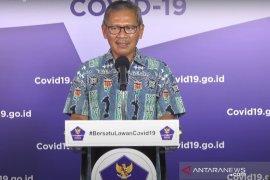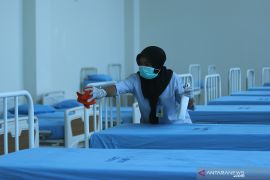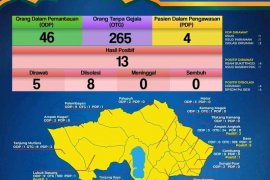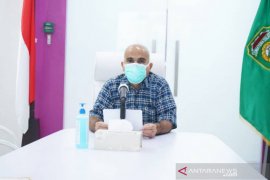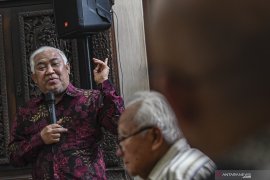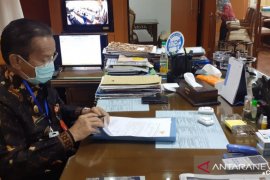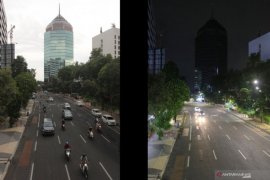"I have informed South Korea, France, Italy and Germany of our terms of reference (to bid for the project). We will hold a `beauty contest` (to find the best partner)," Transportation Minister Budi Karya Sumadi said.Jakarta (ANTARA News) - The Indonesian government is considering inviting the private sector to manage some of the countrys airports as the state budget may not be enough to speed up the development of infrastructure in the transportation sector.
By offering the management of the airports to the private sector, the government can use the budgetary funds it will thus save to develop transportation infrastructure in remote areas which suffer due to dwindling state revenues.
Under the medium term national development plan for 2015-2019, the development of the transportation sector will cost Rp1,823 trillion, while only 491 trillion worth of budget funds was allocated for the sector.
Two airports will be offered to foreign investors, most likely through a public private partnership or shared equity ownership scheme. These are Kualanamu Airport in Medan, North Sumatra, and Sepinggan Airport in Balikpapan, East Kalimantan.
Transportation Minister Budi Karya Sumadi said on Nov 18 that foreign investors, including Indias GVK Power & Infrastructure (GVKP NS) and South Koreas Incheon International Airport Corp IIACO.UL have begun eying the management and operation of large airports in the country.
"I have informed South Korea, France, Italy and Germany of our terms of reference (to bid for the project). We will hold a beauty contest (to find the best partner)," he said in his typical, laced with humor style.
"When it comes to Kualanamu and Balikpapan, we will give them a chance to operate them via a public private partnership or on the basis of a shared equity ownership scheme. But for Soekarno-Hatta Airport and Ngurah Rai Airport in Bali, they will be allowed to manage only certain activities," he added.
After all, they are only allowed to hold a 49 percent stake in the airports at the most, in accordance with the law. The government, which will still hold the rest 51 percent of the stake will retain control of the airports, he explained.
Budi pointed out that it will take one year for the government to make preparations for such cooperation. The preparations include discussions regarding such an agreement.
"We must first negotiate with them whether they will buy a 49 percent stake or pay Rp100 trillion, but they are only ready to pay Rp50 trillion. Therefore, we must discuss it with them," he stressed.
In addition, where the management of operational area is concerned, the government will only allow them to manage commercial areas under a cooperation scheme, while the government will retain control of transportation safety and security.
"For instance, we will continue to control the air traffic side at the airports, while we will jointly operate the terrestrial side management under a cooperation scheme," he observed.
The minister expressed the optimism that the cooperation with the private sector and state-owned companies will help meet the needs covered in the state budget for up to five years.
In total, the development of transportation infrastructure between 2015-2019 will cost Rp1,600 trillion, while the state budget will only be able to provide up to Rp460 trillion, he reminded.
"This means that we still need more than Rp1,000 trillion. We will be able to offset the cost with the help of other parties. The transportation sector is a field we can run in conjunction with the private sector," he commented.
He emphasized that at least 50 percent of the Rp1,000 trillion target investment can be achieved through cooperation with the private sector and state-owned companies.
Therefore, a number of profitable airports will be offered to state-owned companies or private firms to be operated under such schemes.
"In the meantime, we will continue to manage airports and ports in remote areas," he assured.
While ceding a greater role to the private sector, the Transportation Ministry must strengthen its role as a regulator. "This way, we can focus on our duties as a regulator while all activities will be carried out jointly with the private sector," he explained.
Meanwhile, public policy expert Agus Pambagio recalled that the plan to offer the management of airports to the private sector is not something new but remains subject to a review lest it inflicts any loss on the state exchequer.
"For instance, foreign airport operators such as Schiphol Airport had once tried to manage an airport in Indonesia but to no avail as during its 30-year contract with the government, the profit would have been very small for Indonesia," he clarified.
Therefore, only large and profitable airports will be offered to the private sector to operate them. (*)
Reporter: Suharto
Editor: Heru Purwanto
Copyright © ANTARA 2016

